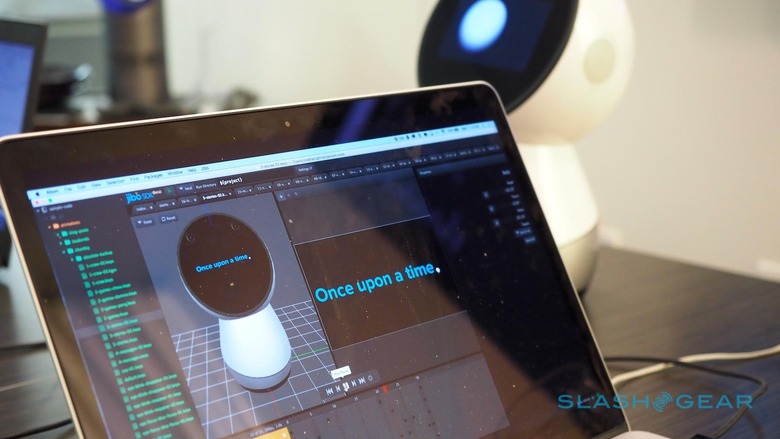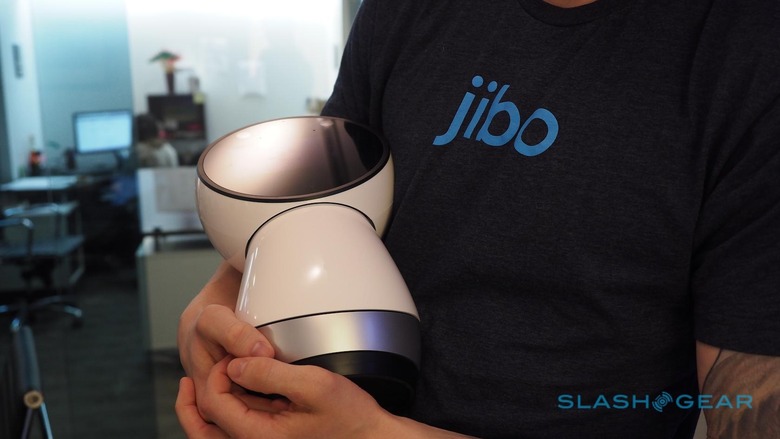New Jibo ship date drops social robot into Alexa's new world
Remember Jibo? The social robot promised to be your family's best houseguest ever al the way back in 2014, with its lifelike movements and witty quips. Delays followed, of course, but now the company says it's finally – finally – ready to launch.
Jibo certainly had some solid bona-fides behind it. The company was founded by MIT robotics expert Cynthia Breazeal, and included a roster of engineering talent along with former Disney animators responsible for the bobble-headed 'bot's movements. The result, so the promise went, was a robo-companion that, even though it only had an amorphous ball for a "face," could be just as interactive and personable as a more lifelike creation.
The company also had big ambitions for Jibo's interactions. It had developed its own voice control system, with the robot able to recognize people via its cameras and then hold conversations with them. Jibo planned to court developers for third-party apps and services, too.

Unfortunately, the path to launching a companion robot turned out to be trickier than expected. Jibo's team initially expected to have it on the market by 2016, but a series of delays saw that eventually pushed back into 2017, while preorders outside of North America were cancelled completely. Now, at the tail-end of the year, Jibo is back with another launch date.
MORE Jibo vs Alexa is down to developers' hearts
Come November 7, so the company says, Jibo pre-orders will begin shipping. New orders are being taken from today, with the robot priced at $899. Developers wanting to get involved will be able to use the Jibo SDK, though that's not expected to be released until 2018.
Assuming it all pans out – and we've heard Jibo release dates before, and seen them come and go, so I think a little skepticism is probably warranted – the robot will arrive to a very changed landscape. Back when it was first announced, the first-generation Amazon Echo was still unknown, and the whole ecosystem of smart speakers that have expanded to include the Google Assistant, Microsoft Cortana, and, soon, Siri in the Apple HomePod were years out.

Initially, Jibo's argument that for a robotic friend and assistant to be accepted it would need to ingratiate itself with movement and faux-emotions seemed fair. However the degree to which consumers are now comfortable interacting with a disembodied voice, hosted inside a speaker that looks more like an air freshener or a vase, has advanced upon us rapidly. Today, with a second-generation Echo available under a hundred bucks, spending nine times that amount on a robot with a relatively untested AI seems a little more reckless.
Jibo has, certainly, some advantages over an Echo and its smart speaker rivals. Nonetheless the company's challenge is far more considerable than just shipping units to buyers, despite how significant a part of its struggles that has proved to be over the past few years. Now, it needs to prove that Jibo has enough unique talents to make it a welcome long-term houseguest, and not just an expensive novelty.
